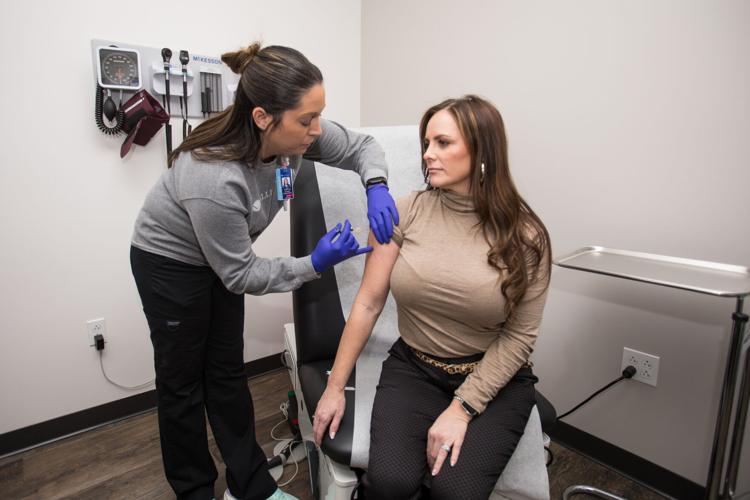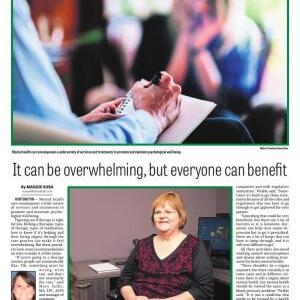HURRICANE �����Ƶ� Health officials have confirmed local cases of the highly contagious disease pertussis, also known as whooping cough, this month.
The exact number of cases is unclear; however, a memo sent from Marshall Health Network to medical staff Wednesday noted four confirmed cases at Hurricane High School, with additional cases in Cabell County and in Lawrence County, Ohio.
HD Media has requested updated statewide data from the West Virginia Department of Health.
Ann Moore, with the West Virginia Department of Health, said in a statement Thursday night that the West Virginia Bureau for Public Health has been actively investigating the pertussis outbreak in Putnam County since Friday. To date, there are five confirmed cases.
Dr. Samia Turner, health officer for the Putnam County Health Department, said Thursday there may typically be a few cases each year during the respiratory season.
Any two cases where those diagnosed with pertussis do not live in the same household is considered an outbreak, she said.
�����Ƶ�We do have a few confirmed cases in Putnam County, which seems to be a little bit more than normal for this time of year,�����Ƶ� Turner said. �����Ƶ�They do seem to be related, and our epidemiologist is working on contact tracing and making sure that everyone is notified that is a close contact of any of the positive cases.�����Ƶ�
She said, as testing is still being completed, she could not give a definitive number of cases.
Mikaela Earl, epidemiologist at the Cabell-Huntington Health Department, said while the department investigates all reported cases of whooping cough, she could not provide any specific numbers.
Debbie Fisher, administrator at the Lawrence County Health Department, said the last reported case in the Ohio county was Jan. 10.
Turner said whooping cough typically starts with a runny nose and a slight cough. Eventually the illness could cause coughing fits, difficulty breathing, vomiting or exhaustion, according to the Putnam County Health Department.
�����Ƶ�The reason it�����Ƶ�s called whooping cough is because, what happens is, as the disease progresses, you can have coughing that seems to be difficult to catch your breath. So when you try to catch your breath in between, and you have that inhalation, that�����Ƶ�s that abrupt inhalation, it causes that whooping sound,�����Ƶ� Turner said.
Turner said, as the symptoms for whooping cough are similar to that of other respiratory viruses this time of year, it may be hard for someone to know for sure if they have it. But for those who do, she recommended making an appointment with their primary care physician.
She said anyone confirmed to have whooping cough would go through an antibiotic course, and although there is no specific quarantine, it is recommended they stay home until they�����Ƶ�re asymptomatic or at least five days while taking the antibiotics.
Whooping cough can spread easily from person to person by coughing or sneezing, but the best way to prevent the illness is by getting vaccinated, Fisher said.
Preventing whooping cough
According to , people of all ages are recommended to get whooping cough vaccines.
For young children, DTaP is recommended when they�����Ƶ�re 2, 4 and 6 months; again between 15 and 18 months of age; and again between 4 and 6 years of age. The Tdap vaccine is recommended for preteens ages 11-12, pregnant women during the 27th to 36th week of each pregnancy, and any adults who haven�����Ƶ�t yet received it.
The carries both the DTaP and the Tdap vaccines. Fisher said the vaccines are also available at the and the Tdap vaccine is available at the , according to its website.
According to the Putnam County Health Department, infants, young children, individuals with weakened immune systems and the unvaccinated are at the greatest risk of contracting the illness.
Turner said there is still a chance someone could contract whooping cough even if they�����Ƶ�ve had the vaccine, although it�����Ƶ�s less likely and the vaccine prevents more serious cases.
�����Ƶ�The other thing is just good hygiene,�����Ƶ� Fisher said. �����Ƶ�Anything they can do to stop the spread of bacteria or viruses, washing their hands, covering their coughs and sneezes, not being around people when they�����Ƶ�re sick, and not going out if they�����Ƶ�re sick.�����Ƶ�














